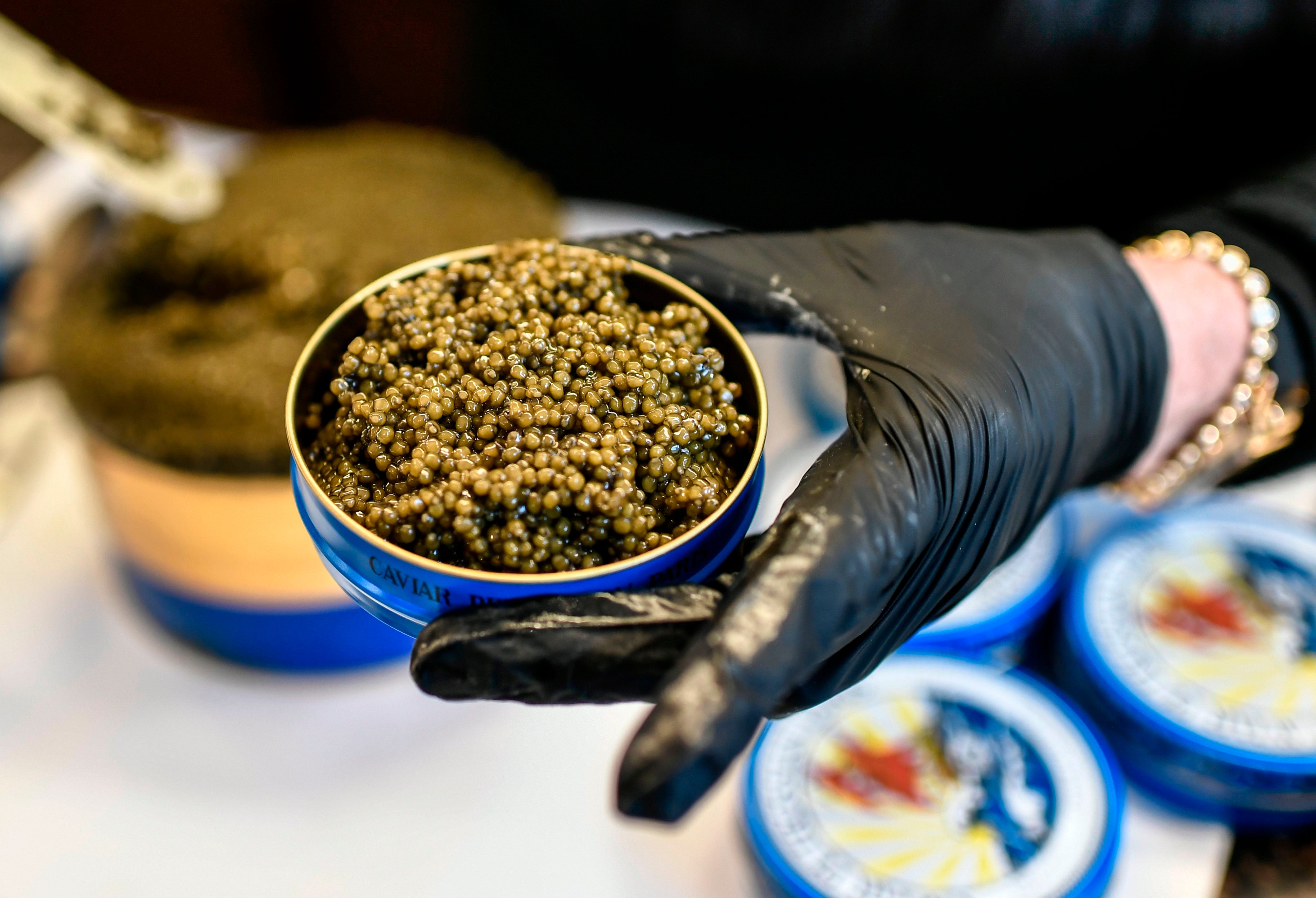Wisconsin wildlife officials ate $20,000 of illegal caviar, ‘sturgeon general’ faces charges
Ryan Koenigs faces charges of misdemeanor theft for trading sturgeon eggs illegally

Your support helps us to tell the story
From reproductive rights to climate change to Big Tech, The Independent is on the ground when the story is developing. Whether it's investigating the financials of Elon Musk's pro-Trump PAC or producing our latest documentary, 'The A Word', which shines a light on the American women fighting for reproductive rights, we know how important it is to parse out the facts from the messaging.
At such a critical moment in US history, we need reporters on the ground. Your donation allows us to keep sending journalists to speak to both sides of the story.
The Independent is trusted by Americans across the entire political spectrum. And unlike many other quality news outlets, we choose not to lock Americans out of our reporting and analysis with paywalls. We believe quality journalism should be available to everyone, paid for by those who can afford it.
Your support makes all the difference.Deep in the frozen heart of Wisconsin, state wildlife officials allegedly dined like oligarchs, feasting on tens of thousands of dollars worth of caviar and passing around jars of the prised delicacy at team meetings.
Meanwhile, some of their colleagues were working undercover to expose the long-running scheme responsible for the lavish spread, and tipping federal authorities off to a world of clandestine after-hours meetings at state laboratories and five-gallon buckets filled with gleaming fish roe.
The extensive three-year investigation resulted in the arrest of the state's top sturgeon expert last week. Ryan Koenigs, nicknamed the "sturgeon general" by local television stations, allegedly obtained at least $20,000 (£14,000) worth of caviar in a single year while holding down an otherwise unglamorous post as a biologist for the Wisconsin Department of Natural Resources. He faces charges of misdemeanor theft for illegally trading sturgeon eggs, as well as obstructing an investigation by a conservation warden.
Court records obtained by WLUK offer no indication that Mr Koenigs, 36, or any other DNR employees were part of a larger caviar crime ring extending beyond the ice fishing bars of Wisconsin, or had any intention of profiting off the luxury food. But prosecutors noted that strict regulations exist because of the lucrative trade in black market caviar, which has been linked to organised crime.
Caviar is made from curing the eggs of wild sturgeon, a threatened species in many parts of the world. Typically, harvesting the massive, prehistoric fish is off-limits for recreational anglers - with one major exception. During the month of February, Wisconsin allows a limited number of residents to build makeshift shanties on frozen Lake Winnebago, near Oshkosh, where they plunge spears into the icy depths and pull up lake sturgeon that can weigh more than 100 pounds and yield hundreds of thousands of dollars worth of caviar.
Under state law, spear fishermen are entitled to keep any caviar from their catch, but can't sell it. And many prefer the thrill of the hunt to the taste of briny fish eggs. But DNR staffers had developed a taste for the pricey appetiser, and according to a criminal complaint, Wisconsin game wardens had a long-standing directive to collect eggs for "research purposes" whenever anglers said they didn't plan to process and eat them.
While some of the wardens told investigators they were under the impression that those eggs were being used for a scientific study, other wildlife officials said that the scheme was primarily intended to ensure that DNR employees had a steady supply of caviar that would cost upward of $100 (about £71) per ounce in stores. The arrangement dated back to at least 2011, before Mr Koenigs was in charge.
"Basically we distributed among ourselves and had a good old time with it," DNR fisheries supervisor Kendall Kamke told a warden, according to the affidavit.
The affidavit indicates that some game wardens repeatedly expressed concerns about the scheme, which went against an ethics policy requiring sturgeon roe that wasn't being used for research to be destroyed so that DNR employees didn't appear to be "personally benefiting from their position." But staffers in other roles expressed an unwillingness to let perfectly good caviar go to waste.
Others benefited from the arrangement, too, officials said. Working undercover with agents from the US Fish and Wildlife Service, game wardens found that other DNR employees were also illicitly funneling sturgeon eggs to locals willing to turn the roe into caviar in exchange for a share. One former state fisheries biologist became a caviar processor after retiring, and began making "after hours" visits to a state laboratory to pick out the best-looking eggs. The former scientist, who has not been charged, kept a third of the finished product for himself and gave the rest to DNR staff, who would "keep the eggs for personal use, eat some at team meetings, and put some out at registration stations or nearby bars," according to the complaint.
As a result of the sweeping investigation, authorities also filed criminal charges against a pair of octogenarians and the owner of a lakefront bar popular with ice fishermen. All three are accused of receiving caviar as payment for processing sturgeon eggs, violating the ban on bartering or trading the valuable roe. It wasn't immediately clear if any had attorneys.
Mr Koenigs, who allegedly lied to investigators about the caviar scheme and attempted to destroy potential evidence from a state-issued mobie phone, has been placed on administrative leave, according to the Associated Press. His attorney told The New York Times that he intends to plead not guilty.
The Washington Post



Join our commenting forum
Join thought-provoking conversations, follow other Independent readers and see their replies
Comments